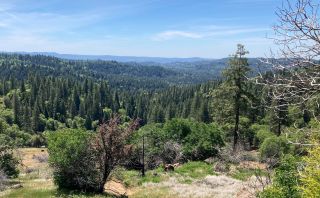Astronaut Edgar Mitchell described seeing the Earth from the moon as “an explosion of awareness” that engendered “an overwhelming sense of oneness and connectedness.” Alan Shepard, the first American in space and the oldest person to walk on the moon, said, “When I first looked back at the Earth, standing on the moon, I cried.”
No amount of training prepares astronauts for the awe and wonder of witnessing the Earth from space. These astronauts see the sublime beauty and striking fragility of Earth—a luminous blue sphere hanging in the darkness of space, protected by a paper-thin membrane of atmosphere.

Source: Pixabay/Pexels
They see the continents as land masses unmarked by national boundaries. Sunset sweeps across the Earth and whole cities suddenly switch on lights. Thunderstorms churn and swirl, as if initiating their own movements. Everything everywhere contributes to beautiful, diverse earthly life.
Mitchell summarized four effects of this experience: “An instant global consciousness, a people orientation, an intense dissatisfaction with the state of the world, and a compulsion to do something about it.”
Seeing the Earth from space engenders the most extreme example of the overview effect—an elevated perspective that radically alters fundamental beliefs and creates an extended epiphany, redefining new and sustaining purpose. Central to the overview effect is self-transcendence—a connection of one’s self with other people and with the natural world.
Experiencing Our Own Overview Effects
Astronauts experience this when they see the Earth from space, but how can the rest of us strive for such a concept-changing, life-altering perspective? We can’t fly to the moon or take a walk out from a space station, but there are earthly activities that can widen and heighten our view and give new insight into our own existence and life in general. Here are some of these perspective-changing activities.
Widening Awareness
.jpg?itok=GXji52dQ)
Source: Tim Douglas/Pexels
In our daily lives, we typically focus and narrow our attention, even while multitasking. Such selective attention allows us to accomplish our work, but it also prevents us from taking a larger view of the world around us. To broaden our perspective, we need to pause and consider the many activities going on around us that we’re not attending to, making an effort to notice what we don’t ordinarily notice.
In particular, we create a cumulatively larger perspective by considering the many aspects of our environs that are functioning well: the leafy trees outside our window, the chair we’re sitting in, our good friend who just emailed, our hands typing, the refrigerator keeping our food from spoiling, our neighbors planting flowers in their yard—as many things as we can notice—slowing down and considering what surrounds and supports us.
Reconsidering Our Central Beliefs
Cognitive restructuring occurs when we encounter something familiar from a bracingly unfamiliar perspective. When Einstein’s general theory of relativity replaced Newton’s theory of gravity, a radical restructuring occurred in the world of physics. Such restructuring also takes place within each of us when we set aside an existing schema and create a new one.
By revisiting a central influence or underlying theory in our life from a radically different perspective, we can achieve an overview effect. One way to accomplish this is by reading large-perspective books, such as 1491 by Charles C. Mann or Sapiens by Yuval Noah Harari or Guns, Germs, and Steel by Jared Diamond or Finding the Mother Tree by Suzanne Simard.
Reading a book or watching a movie that fundamentally reinterprets our assumptions about history or the natural world gives a perspective we’ve never considered and can produce enduring change. When we don’t have a schema to explain the enormity of what we’re learning, we are motivated to make sense of how the new knowledge fits into our life.
Even specific shifts in perspective can broaden into larger restructuring. I experienced a focused epiphany while watching the film My Octopus Teacher, which comprehensively changed my understanding of octopus intelligence and intelligence in general.
Finding the Big Picture Through Travel
We can seek out transcendent earthly experiences by visiting places of great beauty, remarkable difference, and, if possible, high elevation. Travel to national parks, especially in mountainous areas, literally elevates us to see the natural world in overview. Parks such as Grand Canyon, Yellowstone, Grand Teton, Glacier, Yosemite, Olympic, Zion, and Rocky Mountain bestow a sense of awe that can create an extended epiphany.

Source: Alan Vega/Pexels
Travel that immerses us in a diversity of customs and manners presents a larger picture in the form of a mosaic of humanity. I’m told that for those with the resources and motivation, a journey to Ladakh, Kashmir, is awesome and life-changing.
Foraging
Learning from naturalists and then applying the new (old) knowledge by foraging our meals provides a unique perspective of our place in nature. Gardening is a healthy, life-affirming activity, but it confines us to our own small rectangle of the world and doesn’t offer uncultivated nature. Gathering edible plants and roots and fungi from the woods—or from suburban neighborhoods—makes us active participants in the natural world, encouraging an overview effect of the abundance of nature.
Elaborating Awe
When we experience awe, we naturally luxuriate in that experience, but we should also draw on this experience later, integrating it into our lives. The vivid memory of awe and the new perspective it engenders can guide us in thinking about our future selves. After seeing and feeling the overview effect, many astronauts change their professional trajectories and redirect themselves to philanthropy, environmental causes, and working for peace.
While walking on a nature trail, I overheard a person behind me saying to a friend, “I just can’t see the big picture.” I stopped, eager to hear what might be a large truth. She then said, “Unfortunately, the lamp is in the way.” That was disappointing, but it reminded me of the rarity of a larger perspective and the efforts it takes to attain it.

Source: Robert Kraft
In fact, we can learn directly from the astronauts themselves who experienced the overview effect and became wholly aware of the unity of life—beginning with the references below and the movie The Overview Effect.
Further exploration leads to astronaut Ronald Garan’s book The Orbital Perspective and his movie Planetary, which synthesizes the interpretations of scientists, theologians, and philosophers dedicated to the underlying belief in the interconnectedness of all people and all forms of earthly life.



















+ There are no comments
Add yours